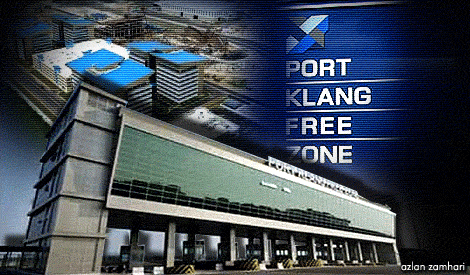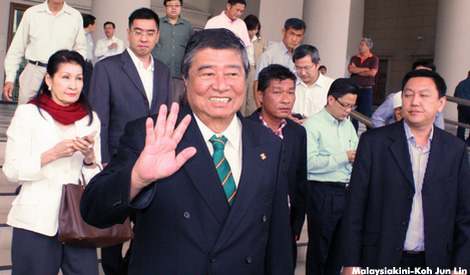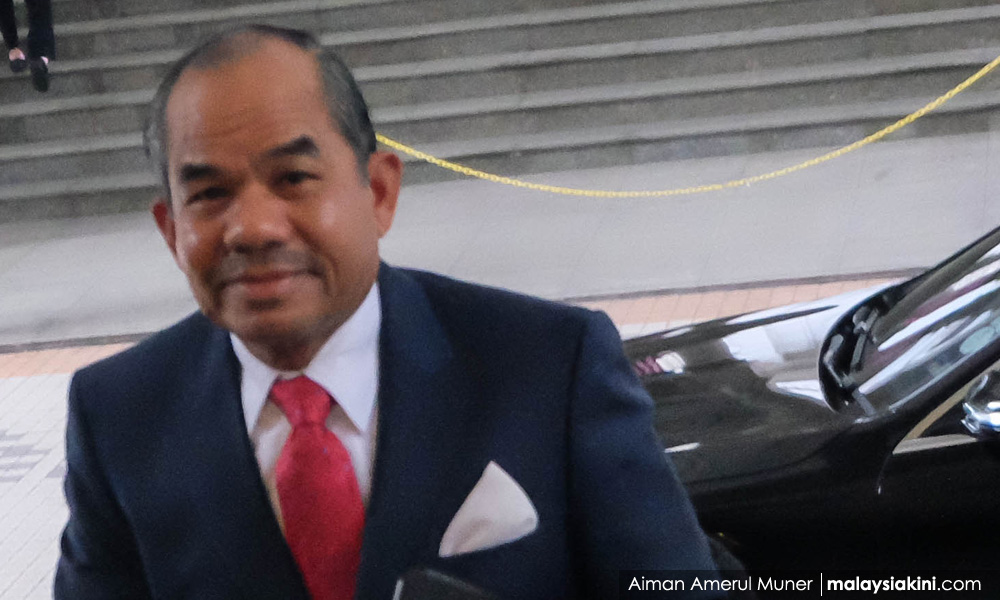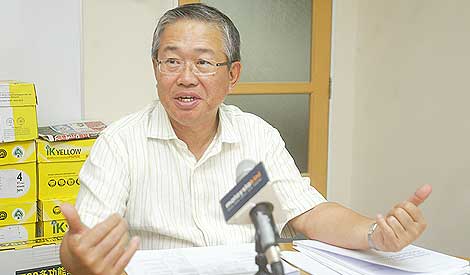
Government agency ‘A’ commissioned and appointed ‘B’ as the turnkey contractor for its project ‘C’. Using the contract as leverage, ‘B’ sought a loan from ‘D’ who was reluctant to do the needful without any guarantee. ‘A’’s employer ‘E’ was headed by ‘F’ and later ‘G’ and they supported the application in the form of letters.
‘B’ did not settle the loan and ‘D’ sought out ‘A’ who had nothing to do with it. But ‘E’ paid up and treated the payment as a loan to ‘A’, who more or less ended up as a slave, earning money to pay ‘E’ for the next 29 years.
This was no ordinary loan of a couple of thousands from the big, strong and friendly bank “jaga” on a “sepuluh dua” basis. Neither was it from the friendly Ah Long or the chettiar using a property as collateral. It involved billions, if not millions – all taxpayers’ money.
Still don’t get it? You will when the blanks are filled. ‘A’ is the Port Klang Authority (PKA); ‘B’ is KDSB Sdn Bhd and ‘C’ is the Port Klang Free Zone (PKFZ). With ‘D’ being the financial institutions and ‘E’ being the government of Malaysia, the skeletal arrangement beckons. With ‘F’ and ‘G’ being former Transport Ministers Ling Liong Sik and Chan Kong Choy, the whole picture falls into place.
The original cost for setting up the free trade zone was RM1.845 billion, but this swelled to RM4.6 billion when the project was completed five years later. A total of RM3.77 billion was raised for the PKFZ project, which included land and development costs. No one bothered about the rising costs – not even the directors of PKA. It was later established that there were huge instances of double-billing.
The chief accountant of PKA resigned in disgust after refusing to sign such wanton waste of public funds. PKA was never involved in the loan negotiations because they never needed the money. At that time, there was a healthy reserve of RM450 million in its coffers. The financial institutions provided the money direct to KDSB with little or no reference to PKA, the ministry or the government to enable completion of PKFZ. Today, PKA is saddled with a RM3.8 billion ‘loan’ of which it never saw a sen.
All the bonds and commercial papers/medium commercial papers/medium term (CP/MTN) were assigned triple ‘A’ by Malaysian Rating Corp Bhd due to government backing for the PKA to undertake the project. In addition, letters of support (not letters of guarantee) were issued by the government to the lead arrangers of the bond issue.
PKA earns about RM260 million annually. With its administrative costs of RM80 million, maintenance costs of RM6 million and the RM222 million annual loan repayment, it will have a deficit of about RM40 million every year – for the next 29 years.
Both Ling (photo) and Chan told parliamentary inquiries that their letters were not guarantee letters but “letters of support” - whatever that means. The then PKA general manager OC Phang pleaded that she did not know the accounting and balance sheets when asked about the goings-on in this project.

Port operator
PKA was a port operator until the West, North and South Ports fell into private hands. It ended up merely as a regulatory body on matters related to shipping and its main income is from levies imposed on the use of its facilities. Their responsibilities include ship and cargo handling, safety and security and trade facilitation. It also acts as a free zone authority.
When Ong Tee Keat became transport minister in 2008, one of his first tasks was to commission PriceWaterhouse Coopers (PwC) to prepare an in-depth report on the status of PKFZ. The law firm of Skrine & Co was commissioned to look at the civil and criminal liabilities of certain parties arising from that report.
Two partners of the firm, Vinayak Pradhan and Lim Chee Wee presented a damning report to the then prime minister, Najib Abdul Razak. They identified those criminally liable for certain acts and omission. They also identified the people behind large-scale misappropriation of money and misuse of authority.
This was in 2009 and Najib set up a task force headed by then chief secretary to the government, Mohd Sidek Hassan (below). That was the last anyone heard about the task force or the wheeling and dealing in PKA/PKFZ.

Task forces and special committees have specific roles to play in society. In the past, they have been effective in getting to the root of the problems and issues. However, over the years, politicians and civil servants have honed their skills and turned them into effective machinery to counter accusations and claims of shortcoming, hanky-panky or malpractices.
The government used them to silence critics who wanted some form of action against purported wrongdoers. “We have set up a task force to deal with the matter” was its tagline to deflect negative publicity on the thievery and deceit that was taking place. They never go beyond that!
PKA is currently in talks with the Ministry of Finance (MoF) to restructure the repayment but the vital question in this whole episode is: Why should PKA pay for a loan which it never took, let alone seen a sen of it? PKA did not guarantee the loan.
Unanswered questions
Several answers have remained unanswered over the years. Why did MoF and the government bend backwards to undertake payment? Was advice sought before payment was made or did the former PM sign the papers “as a formality” as has been claimed by his officers? Why did the government venture into a private transaction between two parties – KDSB and the financial institutions – when it had no interest in it whatsoever?
Why didn’t the government tell the financial institutions to go after KDSB and make the claims from that company? Why did it commit to paying a loan which it never took? PKA was not involved in the transaction and neither was it involved in the discussions with the financial institutions or those who arranged the loans. Why was PKA forced to pay?

I raised these questions at two different forums with two different former PKA chairpersons – Lee Hwa Beng (above) and Teh Kim Poo. While the latter was totally in the dark, Lee put it bluntly: “I was instructed by the Attorney General’s Chambers to undertake repayment. I did not want to go to jail.” These prophetic words were and still telling indeed.
But what about the PKA directors at that time? Were they sleeping when decisions were made and approvals were given? Why didn’t they raise a red flag when costs started escalating? Why wasn’t there fire and fury when ridiculous papers were presented at board meetings?
At a meeting of the PKA board in 2009, Lee and another former PKA general manager M Rajasingam moved a motion to proffer charges against 27 former directors for breach of fiduciary duties. But it did not find support from the “brotherhood” among board members who were appointed based of their positions in the civil service.
Not surprisingly, a few months later, both subsequently lost their seats on the board – replaced by those subservient to political bosses. But the bottom line is that directors should be held liable. They were not appointed merely to rubber-stamp decisions and collect their allowances.
While everyone seems to be focussed and raising hell on 1MDB and related matters, scant attention is being paid to the PKFZ fiasco which was then the biggest financial scandal in Malaysian history – second only to the BMF scandal of the 80s.
Some explanation must be forthcoming instead of just closing the chapter by saying, “these were actions of the previous regime.” There must be closure and an investigation into whose pockets the millions went.
R NADESWARAN has written extensively (including a book) on the PKFZ scandal. To date, no one has been punished for any wrongdoing. Comments: citizen.nades22@gmail.com -Mkini



No comments:
Post a Comment
Note: Only a member of this blog may post a comment.